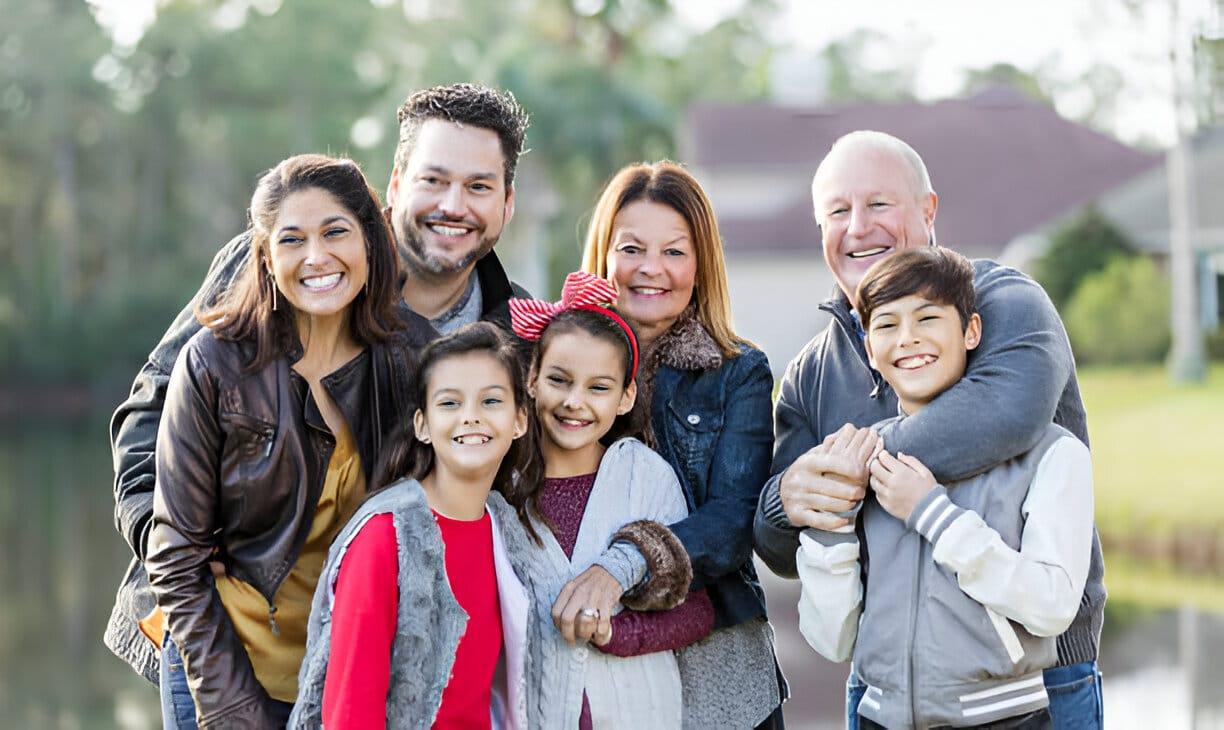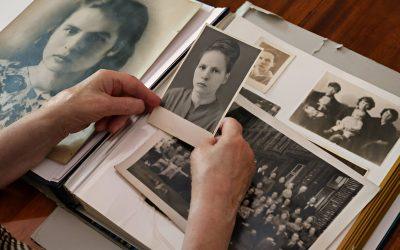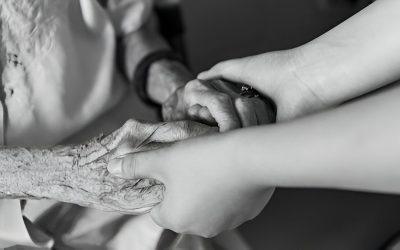A Heart Heavy with Regret
After his grandmother passed away, Daniel found himself replaying moments he wished he could change. “I should have visited more,” he thought, scrolling through old messages he never answered. “I should have told her I loved her one last time.”
At the funeral, surrounded by family, he felt a pang of guilt seeing younger cousins who had spent more time with her in her final years. Grief weighed on him, but guilt wove through his sorrow, magnifying every “what if” and “if only.” Though his grandmother had been endlessly forgiving, his heart clung to regrets that refused to let go.
Daniel’s story is all too familiar. Guilt often emerges when reflecting on what could have been done differently, especially after the loss of a grandparent. While guilt is a natural part of grief, it doesn’t have to be a permanent burden.
Why Guilt Often Accompanies Grief

Guilt and regret are common after a significant loss, especially when reflecting on how things “should have” been:
🕯 Unfinished Conversations – Yearning for one more chance to express “I love you” or to say thank you.
🌿 Time Apart – Wishing you’d visited more often, answered more calls, or hadn’t let life’s busyness take priority.
🤍 Disagreements or Conflicts – Feeling remorse for unresolved arguments or misunderstandings.
💭 Survivor’s Guilt – Mourning that your grandparent won’t witness future milestones like weddings, graduations, or new life changes.
🔄 Comparisons with Others – Seeing family members who spent more time or had a different type of bond can heighten feelings of inadequacy.
These thoughts can entangle you in the past, overshadowing the love you did share with your grandparent.
The Emotional and Physical Toll of Guilt in Grief
Grief alone is draining, but when guilt is added, it can feel doubly heavy.
Common repercussions include:
🌑 Persistent Regret & Self-Blame – Focusing on missed calls or unspoken words instead of the happy memories.
😞 Anxiety & Depression – Constantly reliving what “could have been” can make it hard to find peace.
🌙 Sleep Disturbances – Insomnia, restless nights, or dreams filled with remorse.
🍂 Loss of Appetite & Fatigue – Emotional strain easily manifests as physical exhaustion.
🛑 Social Withdrawal – Feeling unworthy of support, leading to isolation that compounds sorrow.
Acknowledging these signs is crucial: unprocessed guilt can prolong or intensify grief, yet it doesn’t have to define your healing journey.
How to Process and Cope with Grief-Related Guilt
Acknowledge & Validate Your Feelings 💙
Pushing guilt aside only allows it to grow.
✔️ It’s normal to have regrets when someone passes.
✔️ Grief magnifies “what if” thoughts—this doesn’t negate the love you shared.
✔️ Feelings of guilt do not define your entire relationship with your grandparent.
💡 Tip: Instead of “I was a terrible grandchild,” try “I loved them, and I did my best with what I knew at the time.”
Honor Their Memory in Meaningful Ways
Transform guilt into a tribute that echoes their significance:
✔️ Continue a Tradition – Cook their favorite recipe or keep a holiday custom alive.
✔️ Volunteer in Their Honor – Support a cause they cared about.
✔️ Share Their Legacy – Talk about them with younger relatives, ensuring their story lives on.
Seek Support from Others
Grief, especially when layered with guilt, can be too heavy to carry alone:
✔️ Talk to Family – They might share similar regrets or reassurance.
✔️ Consider Group Support – Online or local grief circles can normalize your feelings.
✔️ Therapy – A grief counselor can guide you through the complexities of guilt.
Reframe Your Thoughts with Perspective
Ask yourself: If your grandparent were here, would they want you weighed down by guilt?
❌ “I didn’t visit enough.”
✅ “They appreciated every visit we did have.”
❌ “I should have said I love you more.”
✅ “My grandparent felt love, even if I couldn’t say it every day.”
Focus on the Relationship as a Whole
A single missed call doesn’t erase years of affection and shared memories.
💡 Tip: List five cherished memories that speak louder than any regrets.
Express What Was Left Unsaid
Though your grandparent is gone, you can still articulate unspoken words:
✔️ Write a Letter – Pour all your unexpressed thoughts onto paper.
✔️ Speak Aloud – Imagine them listening, responding with grace.
✔️ Create a Ritual – Light a candle or visit a place they loved to connect with them in spirit.
“We grieve where we didn’t give, but love’s memory is broader than a single regret.” — Naomi R.
Things To Try This Week!
- Personal Apology Letter:
Write a letter addressed to your grandparent expressing regret. End it by listing moments you shared that overshadow any missed chances.
- Talk to a Trusted Ally:
Invite a sibling, cousin, or friend for a conversation. Share your guilt and let their perspective remind you that your grandparent’s love was unconditional.
- Set a Legacy Goal:
Plan a simple act that honors what your grandparent valued—like cooking their favorite dish or supporting a cause they cared about. Let it reaffirm how their influence continues in your life.
Conclusion
Moving Forward with Self-Compassion
Letting go of guilt does not mean erasing your grandparent’s memory or minimizing the regrets; rather, it’s about choosing to hold onto their love over your regrets.
🌿 Forgive yourself for being imperfect—your grandparent likely did.
🌿 Reflect on the moments of joy and the ways they shaped your life.
🌿 Accept that love’s measure isn’t found in moments missed, but in the deeper bond that endures.
Your grandparent’s legacy lives on in you—in the values they passed down, the traditions they taught, and the love you continue to carry forward. By replacing guilt with gratitude, you make space for healing, remembering that your connection was rooted in care, even when it wasn’t flawless. 💙
Guilt within grief can weigh heavily, especially when it involves loved ones who shaped your foundation. But while sorrow may speak of missed moments, it also affirms how deeply you cared.
Let each reflection, memory, or small ritual guide you from regret toward a gentler acceptance. Explore our cherish collections below for resources, creative memorial ideas, and a comforting community—reassuring you that love, not guilt, is the heart’s true legacy.
Moving from Regret to Remembrance: Embracing Grandparents’ Love Beyond Guilt
Losing a grandparent can stir a tide of what-ifs and should-haves, but their legacy is far greater than any moment missed. Our All Things Cherish collection offers gentle insights, keepsakes, and supportive practices to help transform guilt into gratitude, ensuring their memory lives on in understanding and warmth.
More Reflections, More Growth
Long-Distance Love: Coping with the Grief and Sadness of Long-Distance Grandparenting
Long-distance grandparenting comes with unique challenges, including grief and separation from your grandchildren. This guide offers practical strategies to help maintain strong bonds and emotional connections, even when physical distance creates a sense of loss.
Cumulative Grief: Coping with the Loss of Multiple Grandparents in a Short Time
Cumulative grief occurs when multiple losses pile up, overwhelming the grieving process. This guide offers strategies for navigating the complexities of losing multiple grandparents, honoring their memory, and caring for yourself during this challenging time.
Navigating Grief After the Loss of a Grandparent: A Guide for Adult Grandchildren
Losing a grandparent is often an overlooked form of grief. For adult grandchildren, this loss can bring deep sadness, mixed emotions, and a sense of disconnectedness from family history. This guide offers coping strategies for navigating grief, honoring their legacy, and integrating their presence into your life moving forward.
Holding On, Together: Maintaining Family Connections After Loss
Loss reshapes family dynamics, but shared grief can strengthen bonds. This guide offers strategies for communication, rituals, and support to maintain family connections.
A Subtle Yet Profound Loss: Grieving an Extended Family Member
Grieving an extended family member’s death is a unique journey. This guide offers compassionate advice to honor their memory, navigate grief, and find healing.
Honoring a Child’s Memory
Honoring a child’s memory is a profound way to navigate grief. This guide explores creative tributes, rituals, and acts of kindness to celebrate their enduring legacy.
Sibling Bonds: Coping with Loss Together
Grieving a sibling is deeply personal. This guide offers compassionate strategies to navigate grief, honor their memory, and strengthen your bond through shared healing.
When a Sibling Passes: Healing the Void
Losing a sibling leaves a profound void, but healing comes through honoring their memory and embracing connection. This guide explores ways to navigate grief and find peace.
The Unspoken Heartache: Understanding the Quiet Grief of Miscarriage
Miscarriage is a silent grief that touches one in four pregnancies, yet it remains unspoken for many. Explore the layers of loss, the cultural silence, and ways to support healing through acknowledgment and empathy.
Explore Journeys of Healing and Solace:
Discover dedicated spaces that offer understanding, guidance, and connection through grief. From the loss of loved ones to life’s challenging transitions, each category provides a pathway to reflect, connect, and find peace in shared experiences.


























